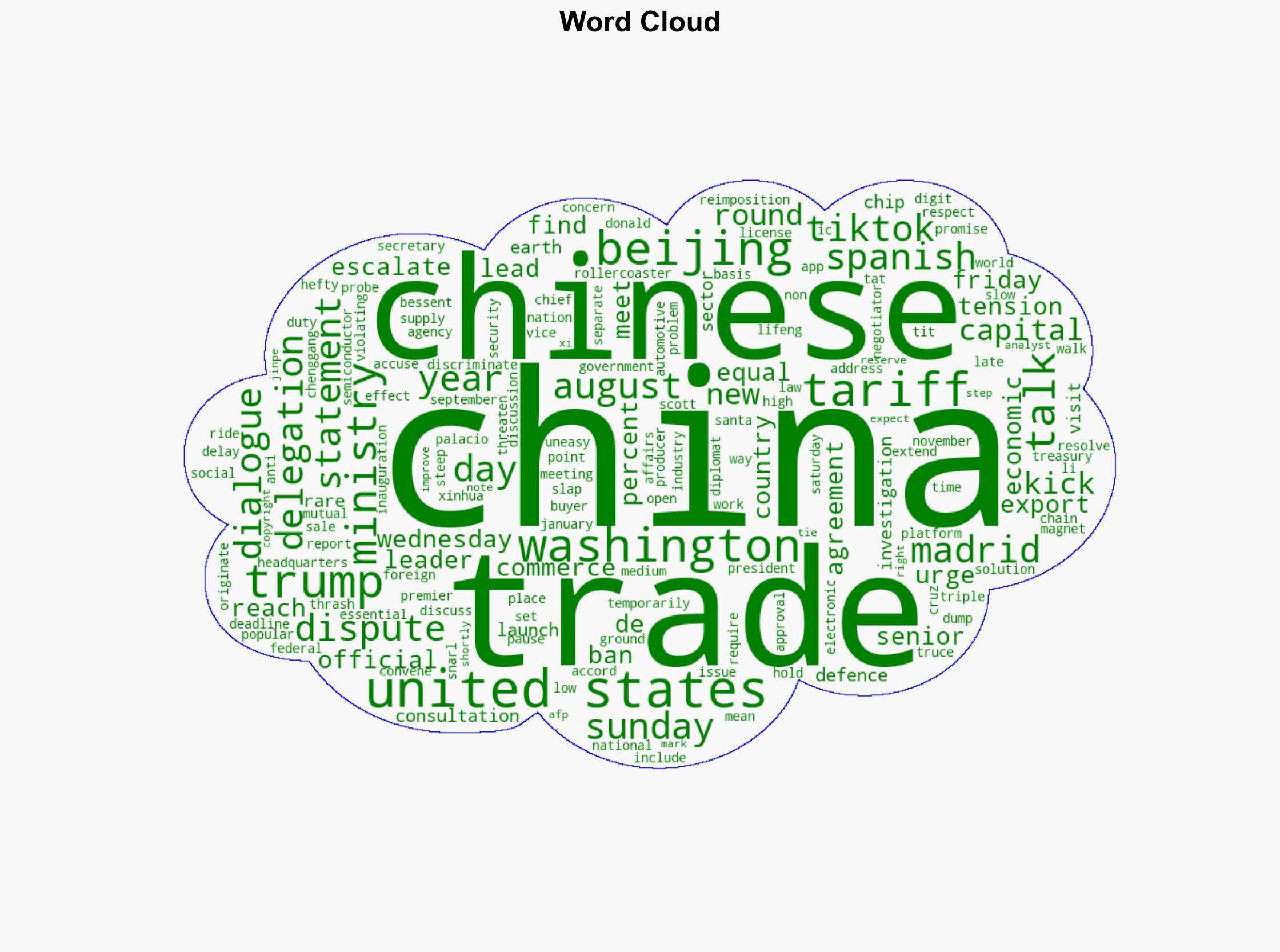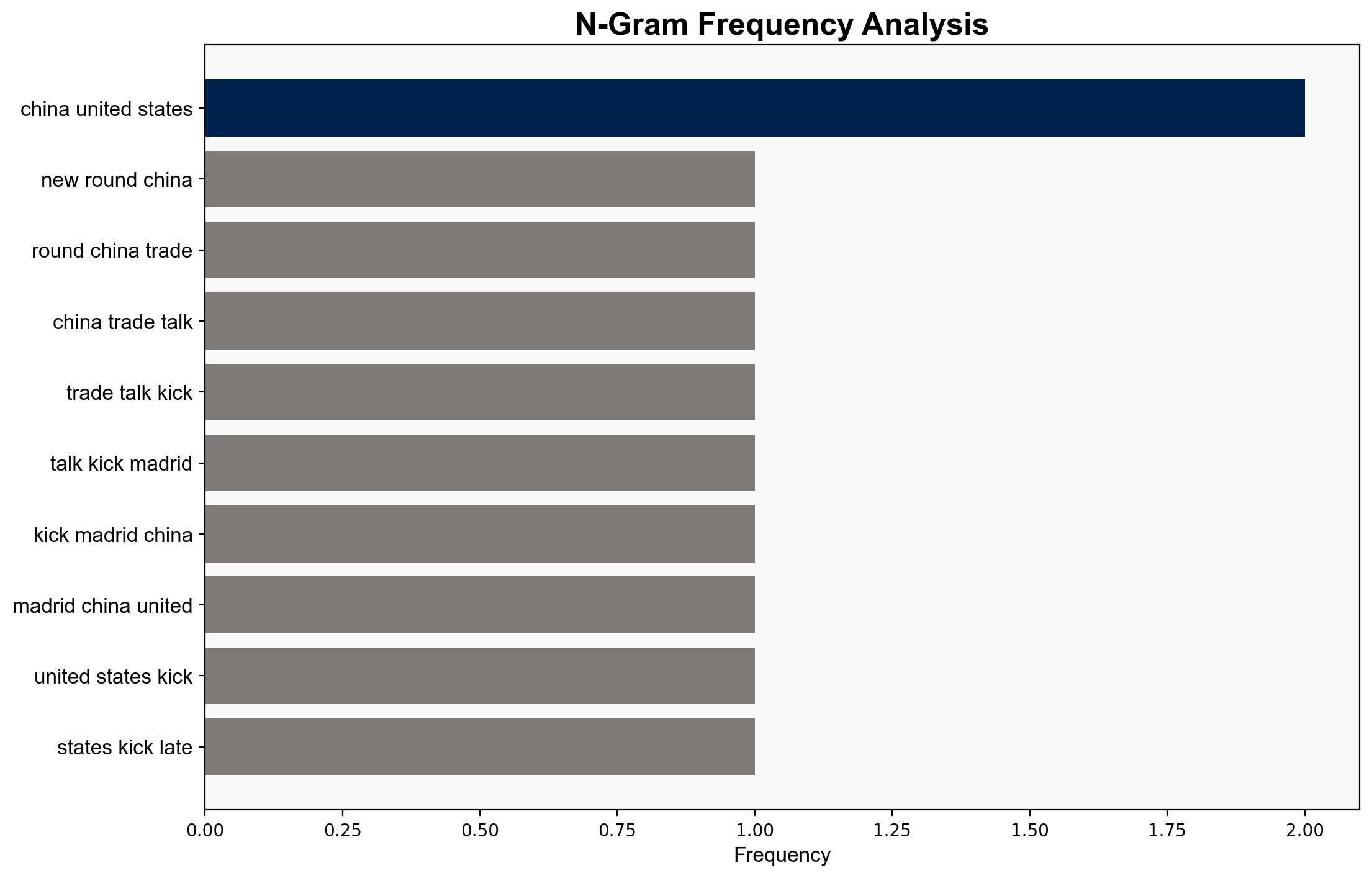New Round Of US-China Trade Talks Kicks Off In Madrid – International Business Times
Published on: 2025-09-14
Intelligence Report: New Round Of US-China Trade Talks Kicks Off In Madrid – International Business Times
1. BLUF (Bottom Line Up Front)
The most supported hypothesis is that the US-China trade talks in Madrid are primarily a strategic maneuver to temporarily de-escalate tensions and avoid immediate economic repercussions. Confidence level: Moderate. Recommended action: Monitor the talks closely for substantive agreements and prepare for potential re-escalation if talks fail.
2. Competing Hypotheses
1. **Hypothesis A**: The trade talks are a genuine effort by both the US and China to resolve ongoing disputes, including the TikTok issue and semiconductor sector tensions, aiming for a long-term trade agreement.
2. **Hypothesis B**: The talks are a tactical move by both parties to temporarily de-escalate tensions, primarily to avoid immediate economic impacts and buy time for internal strategic adjustments.
Using ACH 2.0, Hypothesis B is better supported due to the pattern of past temporary agreements and the lack of substantial new commitments reported. The ongoing investigations and accusations suggest underlying strategic distrust.
3. Key Assumptions and Red Flags
– **Assumptions**: It is assumed that both parties are willing to compromise on key issues. Another assumption is that the talks will lead to a significant reduction in tariffs.
– **Red Flags**: The lack of detailed outcomes from previous talks and ongoing accusations of agreement violations suggest potential deception or lack of genuine commitment.
– **Blind Spots**: The internal political pressures within each country that might influence the negotiations are not fully addressed.
4. Implications and Strategic Risks
– **Economic**: Failure to reach a substantive agreement could lead to re-imposition of tariffs, further straining global supply chains.
– **Geopolitical**: Continued tensions might push China to seek stronger alliances with other global powers, potentially shifting the balance of international trade.
– **Cybersecurity**: The TikTok dispute highlights ongoing cybersecurity concerns that could escalate if not resolved.
– **Psychological**: Prolonged uncertainty may affect investor confidence and economic stability in both countries.
5. Recommendations and Outlook
- **Mitigation**: Increase diplomatic engagement to foster trust and transparency in negotiations.
- **Exploit Opportunities**: Leverage the talks to address broader cybersecurity concerns and establish frameworks for future tech-related disputes.
- **Scenario Projections**:
– **Best Case**: A comprehensive agreement is reached, reducing tariffs and establishing a framework for future cooperation.
– **Worst Case**: Talks collapse, leading to immediate tariff increases and heightened geopolitical tensions.
– **Most Likely**: A temporary agreement is reached, delaying major decisions and maintaining the status quo.
6. Key Individuals and Entities
– **Li Feng**: Vice Premier of China, leading the Chinese delegation.
– **Scott Bessent**: Leading the US delegation.
7. Thematic Tags
national security threats, cybersecurity, economic diplomacy, US-China relations





